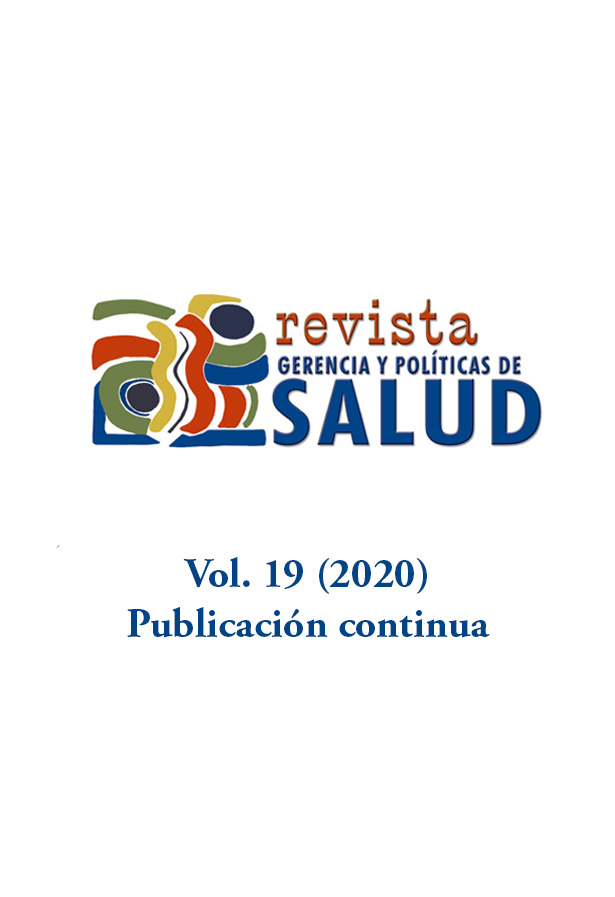Abstract
This paper aims to analyze the processes developed in Brazil and Portugal intended to integrate the Primary Health Care and the Specialized Health Care. Primary Health Care conceived of as the first step for accessing to the health system stands out among the most usual initiatives and thus the family doctors are attributed a prevailing role. It is also emphasized the territorialization of the health services based on the geographic location, the referral to specialized doctors and the implementation of clinic protocols agreed between the parties. The main results indicate that in Brazil they implemented decentralized regulatory systems, and, in Portugal they created local health units (structures owned by the health ministry that integrate primary health care and specialized health care provided by the same management team). In conclusion, this work underlines the need to develop a true investment policy intended to strengthen the response capacity in the specialized health care and to add more value to the work performed by the primary care professionals. This way, they will strengthen the collaborative culture that will translate into successful integration processes with results such as good health and user’s satisfaction.
2. Simões J, Augusto G, Fronteira I. Introduction of freedom of choice for hospital outpatient care in Portugal: Implications and results of the 2016 reform. Health Policy. 2017;121(12):1203-1207.
3. Organização para a Cooperação e Desenvolvimento Económico. Health Status [Internet]. 2018 [revisão 2018 jun. 16]. Disponível em: http://stats.oecd.org/
4. Almeida P, Gérvas J, Freiere J, Giovanella, L. Estratégias de integração entre atenção primária à saúde e atenção especializada: paralelos entre Brasil e Espanha. Saúde Debate. 2013;37(98):400-415.
5. Brasil. Ministério da Saúde, Secretaria de Atenção à Saúde, Departamento de Atenção Básica. Política nacional de atenção básica. Brasília: Editora Ministério da Saúde; 2006.
6. Nunes A. Direito à saúde em Portugal: delimitação jurídica do SNS. Direitos Fundam. Justiça. 2017;11(37):17-34.
7. Biscaia A, Heleno L. A Reforma dos Cuidados de Saúde Primários em Portugal: portuguesa, moderna e inovadora. Ciênc. Saúde Colet. 2017;22(3):701-711.
8. Nunes A, Matos A. Experiências de Gestão Hospitalar Realizadas em Portugal: Uma Perspectiva Comparada. Rev. Eletrônica Gest. Saúde. 2017;8(2):284-301.
9. Portugal. Diário da República. Decreto-Lei n.º 207/99, Cria a Unidade Local de Saúde de Matosinhos n.º 133/Série I-A; 1999 jun. 9.
10. Simões J. Retrato político da saúde. Dependência do percurso e inovação em saúde: da ideologia ao desempenho. Coimbra: Almedina; 2004.
11. Almeida P, Giovanella L, Mendonça M, Escoriel S. Desafios à coordenação dos cuidados em saúde: estratégias de integração entre níveis assistenciais em grandes centros urbanos. Cad. Saúde Pública. 2010;26(2):286-298.
12. Organização Pan-Americana de Saúde. Integrated health service delivery networks: concepts, policy options and a road map for implementation in the Americas [Internet]. Washington (DC): OPAS Publications; 2011 [revisão 2018 maio 24]. Disponível em: http://new.paho.org/hq/dmdocuments/2011/PHC_IHSD-2011Serie4.pdf
13. Sobczak A. Opportunities for and constraints to integration of health services in Poland. Int. J Integr. Care. 2010;2(1):1-10.
14. Byrne M, Ashton C. Incentives for vertical integration in healthcare: the effect of reimbursement systems. J Healthc. Manag. 1999;44(1):34-46.
15. Leichsenring K. Developing integrated health and social care services for older persons in Europe. Int J Integr Care. 2004;4(3):1-15.
16. Tsutsui T. Implementation process and challenges for the community-based integrated care system in Japan. Int J Integr Care. 2014;14:e002.
17. Ahgren B, Axelsson R. A decade of integration and collaboration: the development of integrated health care in Sweden 2000-2010. Int J Integr Care. 2011;11:e007.
18. Portugal. Serviço Nacional de Saúde. Tempos Médios De Espera [Internet]. Disponível em: http://tempos.min-saude.pt/#/instituicoes
19. Monteiro M. A Adopção da eHealth nos Hospitais Públicos em Portugal, 1996-2007. Lisboa: Instituto Superior de Ciências Sociais e Políticas; 2011.
20. Martínez D, Navarrete M, Lorenzo I. Factores que influyen en la coordinación entre niveles asistenciales según la opinión de directivos y profesionales sanitarios. Gac Sanit. 2009;23(4):280-286.
21. Grimshaw J, Winkens R, Shirran L, Cunningham C, Mayhew A, Thomas R, et al. Interventions to improve outpatient referrals from primary care to secondary care. The Cochrane Database Syst Rev. 2005; 20(3): CD005471.
Copyright notice
The Journal Management and Health Policies is registered under the Creative Commons Recognition 4.0 International license. Therefore, this work can be reproduced, distributed and publicly communicated in digital format, provided that the name of the authors and the Pontificia Universidad Javeriana are recognized. It is allowed to quote, adapt, transform, autoarchive, republish and create from the material, for any purpose (including commercial), provided that authorship is properly acknowledged, a link to the original work is provided and if changes have been mad. The Pontificia Universidad Javeriana does not retain the rights over published works and the contents are the exclusive responsibility of the authors, who preserve their moral, intellectual, privacy and publicity rights.
The endorsement of the intervention of the work (revision, style correction, translation, layout) and its subsequent disclosure is granted through a license to use and not through a transfer of rights, which means that the journal and the Pontificia Universidad Javeriana disclaims any liability that may arise from ethical misconduct on the part of the authors. As a result of the protection provided by the license for use, the journal is not obliged to publish retractions or modify the information already published, unless the erratum arises from the process of editorial management. The publication of contents in this magazine does not represent royalties for taxpayers.


